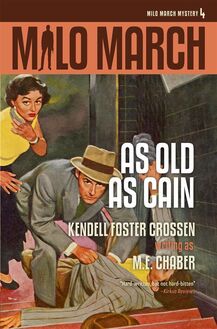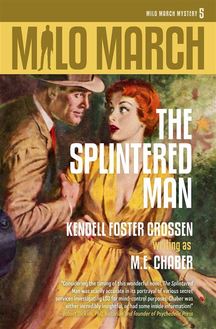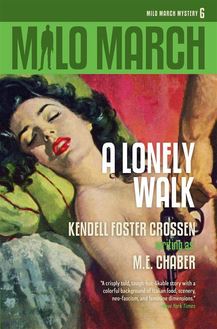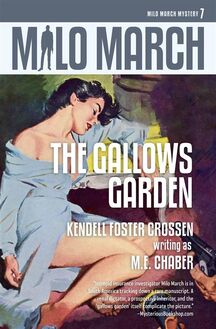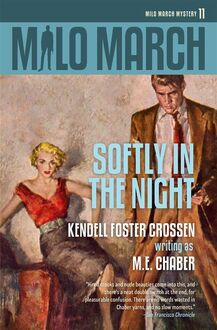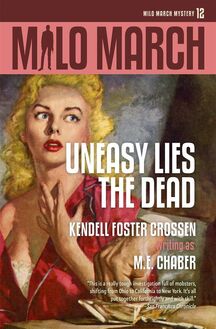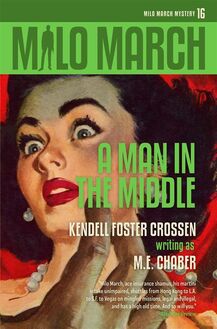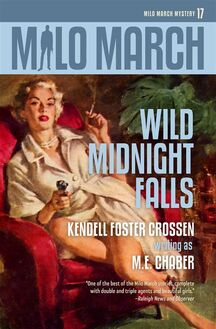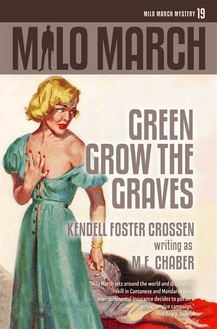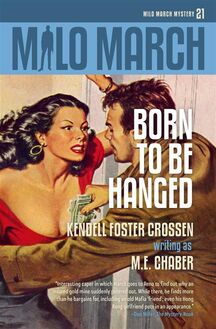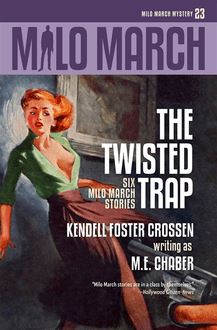-
 Univers
Univers
-
 Ebooks
Ebooks
-
 Livres audio
Livres audio
-
 Presse
Presse
-
 Podcasts
Podcasts
-
 BD
BD
-
 Documents
Documents
-
- Cours
- Révisions
- Ressources pédagogiques
- Sciences de l’éducation
- Manuels scolaires
- Langues
- Travaux de classe
- Annales de BEP
- Etudes supérieures
- Maternelle et primaire
- Fiches de lecture
- Orientation scolaire
- Méthodologie
- Corrigés de devoir
- Annales d’examens et concours
- Annales du bac
- Annales du brevet
- Rapports de stage
La lecture à portée de main
Vous pourrez modifier la taille du texte de cet ouvrage
Découvre YouScribe en t'inscrivant gratuitement
Je m'inscrisDécouvre YouScribe en t'inscrivant gratuitement
Je m'inscrisEn savoir plus
Vous pourrez modifier la taille du texte de cet ouvrage
En savoir plus

Description
Milo questions whether the arson and deaths were truly the work of black rioters. Maybe the arson was separate from the rioting, a setting that merely enabled white men to cover a more serious crime. Focusing on the character and habits of Harry Masters is the key to these questions. No one makes a fortune without also making enemies; could that be why someone torched Masters’ building? People said Masters was a no-good bastard, but good at it. Maybe he had decided he wasn’t satisfied with just making a few million a year. Maybe he wanted to score big and go off somewhere with a delicious broad.
It’s possible Masters engineered the whole thing, then, with the help of a couple of cheap punks connected to the Syndicate—the same punks who are now tailing and threatening March. Masters could steal money from his own company, leaving it crippled or destroyed, and disappear. He could start over in another country and might never be found.
Milo just has to prove that he did it, how he did it, who helped him, where he was, and how to get him back to face the music. That’s all, nothing to it. But Milo has some helpers, too: One is a girlfriend of Harry’s, a voluptuous stripper who seems determined to drink Milo under the table. The other is a young black hipster from the neighborhood. Once Milo has won his trust, he proves to have access to key information that none of the white people suspect.
Sujets
Informations
| Publié par | Steeger Books |
| Date de parution | 26 mars 2021 |
| Nombre de lectures | 0 |
| EAN13 | 9791220284011 |
| Langue | English |
| Poids de l'ouvrage | 1 Mo |
Informations légales : prix de location à la page 0,0012€. Cette information est donnée uniquement à titre indicatif conformément à la législation en vigueur.
Extrait
The Flaming Man
by
Kendell Foster Crossen
Writing as M.E. Chaber
With an Afterword by Kendra Crossen Burroughs
Steeger Books / 2020
Copyright Information
Published by Steeger Books
Visit steegerbooks.com for more books like this.
©1997, 2020 by Kendra Crossen Burroughs
The unabridged novel has been lightly edited by Kendra Crossen Burroughs.
All rights reserved. No part of this book may be reproduced or utilized in any form or by any means, electronic or mechanical, without permission in writing from the publisher. The scanning, uploading, and distribution of this book via the Internet or via any other means without the permission of the publisher is illegal and punishable by law.
Publishing History
Hardcover
New York: Holt, Rinehart & Winston (A Rinehart Suspense Novel), February 1969. Dust jacket by Pete Plascencia.
Toronto: Holt, Rinehart & Winston of Canada, 1969.
London: Robert Hale, 1970.
Paperback
New York: Paperback Library (63-353), A Milo March Mystery, #9, June 1970. Cover by Robert McGinnis.
Dedication
For Louise Waller
Dear Louise: “Youse is a good kid.”
M.E.C.
One
It was late spring in New York City. The weather was already a little sticky. Everyone was thinking about getting a place on the beach for the summer or putting in more air-conditioning. I was no exception. My bank account was. It looked as if the Great Society had never heard of me.
When the hot weather starts, all the rats—four-legged and two-legged—begin coming out of the woodwork and the sewers. There were rumblings and threats of riots. Murder and assassination (a political nicety for “murder”) were on the increase. Every big city was in heat, and violence was the male dog in search of the bitch.
Me? I’m March. Milo March. That’s what it says on the door of my office on Madison Avenue. It also says that I’m an insurance investigator. I wouldn’t have been sure if I hadn’t read it when I came in—business had been that bad for a few months. I was almost ready to believe that everyone had become honest and decided not to cheat the insurance companies anymore. Almost—but not quite.
I opened a desk drawer and took out a bottle of V.O. I lifted it and looked at the contents. It was almost as low as my bank account. I poured a drink anyway and tucked the bottle back in the drawer, sipping the drink slowly. I thought of picking up the morning newspaper, but rejected the idea. Then the telephone rang. I thought quickly before answering it. The bills were all paid, so it couldn’t be a creditor. I picked up the receiver and said hello.
“Milo?”
I recognized the voice. It belonged to Martin Raymond, a vice-president of Intercontinental Insurance. Most of my business comes from them. Things were looking up. I reached into the drawer and patted the V.O. bottle.
“I think so,” I said. “I’m never sure until I’ve looked in the mirror, and I haven’t had the courage to look this morning. How are you, Martin?”
“Great,” he said. His voice dripped with the molasses of clean living. The whole act was a mirage, but he had to keep up the image. “Do you have time to do a little job for us?”
“It all depends on the size of the job,” I said carefully. It never paid to be eager with Martin. “You know I can’t stand those one-night stands.”
He laughed, just to show he appreciated me. “Well, it’s slightly bigger than that. Why don’t you run up here and we’ll try it on for size?”
“I forgot my running shoes today, but I’ll slip downstairs and catch the first milk train that comes along. Don’t give away the store before I get there.” I put down the receiver.
Intercontinental owns their own building on Madison Avenue only a few blocks from my office. It’s one of those modern structures, all glass and steel, with a few stones looking as if they’d been added as an afterthought. I walked to it and took the elevator to the executive floor.
When I stepped out of the elevator, I was ankle-deep in dark blue carpeting. I didn’t even think about it. My attention was on the vision in front of me. This one was a blonde, but it didn’t make any difference; she came from the same neighborhood as the other receptionist—about 38-24-36, a nice neighborhood no matter how you looked at it. I often wondered if they had a vice-president whose sole duty was to find and hire the receptionists. Lucky man.
“May I help you, sir?” It was the blonde interrupting my thoughts.
“Sure,” I said. “What time do you get off work?”
A smile started to tug at her mouth, but she pushed it away. “Just in time to meet my husband. … Whom did you wish to see?”
I glanced at her left hand. No rings. “You’ll never get to heaven,” I said, “telling those little white lies. Oh, well, I’ll see Martin Raymond—but he’ll be a poor substitute.”
This time she did smile as she reached for the phone. “Who shall I say is calling?”
“Let’s surprise him. … No, I guess Martin wouldn’t go for that bit. Just tell his secretary that there’s a man here to pick up his Social Security in cash. She’ll know who it is.”
She was puzzled, but she picked up the phone and repeated what I’d said when she reached Martin’s secretary. She was smiling when she replaced the receiver. “You may go in, Mr. March.”
“Thank you,” I said. I walked to the door, then looked back. “You’d better get rid of that husband. I don’t think he’s any good for you—and you could help me spend Intercontinental’s money.” I stepped through the door and walked down the corridor, wading through more plush carpet.
Martin’s secretary looked up and nodded for me to go into his office, so I opened the door and entered. It looked like a vice-president’s office. It was furnished with antiques that had been altered to make them functional. An early American cupboard was now a liquor closet. A cobbler’s bench held sunken ashtrays, as well as cigarettes and matches.
“Milo, my boy, how are you?” Martin exclaimed. Suddenly I was his long-lost brother, so I knew it couldn’t be an easy case.
“Exhausted,” I said. “It was that long hike through the jungles.”
“That’s my boy. Anything for a laugh. Help yourself to a drink.”
“I thought you’d never ask.” I splashed some V.O. in a glass, and added a cube of ice from the lower part of the cupboard, while thinking that Martha Washington never had it so good. Then I went over and sat down next to the desk.
“How much did you pay for the carpeting in the corridor and the reception room?”
He looked surprised. “I don’t know. Why?”
“I was just thinking that you could have saved a lot of money and gotten the same results by covering the floor with about three inches of Jell-O.”
It took him about a minute to realize it was a joke, and then he laughed heartily. That was one thing about Martin Raymond—he didn’t have a sense of humor, but he had an instinct for knowing when he was supposed to laugh, and he always put on a good show.
I lit a cigarette and waited for him to finish the scene. “What’s the case?” I asked then.
He immediately became all efficiency. “Fire. I suppose you’ve been reading the newspapers?”
“Of course. I never miss Dick Tracy. After all, we’re more or less in the same business. Actually, I feel closer to Fearless Fosdick because he’s also underpaid.”
He gave a hollow laugh. “You underpaid? At three hundred dollars a day and expenses!” He pulled himself together and got the business look back on his face. “A man named Harry Masters. Lived in Los Angeles. President of a large corporation with holdings all over the city. Among other things, the corporation owned a fairly large building in southeast Los Angeles. There were two stores on the ground floor. One sold TV sets, radios, record players, that sort of stuff. It was owned by Masters and run by his brother-in-law. The other was a clothing store leased to a local merchant. The rest of the building consisted of offices. I understand the occupants were mostly lawyers, doctors, and dentists who worked in the community. One floor was occupied by the corporation, although they had several other offices around the city. During the riots a few days ago, it was burned down.”
“Somebody dropped a cigarette, I suppose?”
“Molotov cocktails,” he said grimly. “I don’t know how many. The building was completely gutted, however.”
“Insured, I presume?”
“Yes. By us. For two million dollars.”
“Who gets the bread?”
“The corporation.”
“If it was burned down by the rioters, don’t you still have to pay?”
“I think so,” he said.
“And you want me to go out there and smell around. You have a nasty mind, Martin. You think maybe someone burned it.”
“It’s always possible,” he said. “There were also three people who were trapped in the building and died there.”
I lit another cigarette. “So the plot thickens. Who were they?”
“Identification is not yet certain, but it is believed that two of them were Masters and his brother-in-law and the third one was the night watchman.”
“Also insured?”
“I don’t know about the watchman, but we carried policies on the other two men. There are two policies on Masters. One for two hundred thousand dollars, which his wife will collect—if he’s dead. Another one for five hundred thousand dollars. The corporation is the beneficiary. The brother-in-law had a policy for fifty thousand dollars, which goes to his sister, Mrs. Masters.”
“So we have two million, seven hundred and fifty thousand dollars,” I said. “A tidy little sum. Do you have a concrete reason for being suspicious, or is it just your nasty thoughts?”
“There is no evidence,” he said slowly, “but there’s something wrong ab
-
 Univers
Univers
-
 Ebooks
Ebooks
-
 Livres audio
Livres audio
-
 Presse
Presse
-
 Podcasts
Podcasts
-
 BD
BD
-
 Documents
Documents
-
Jeunesse
-
Littérature
-
Ressources professionnelles
-
Santé et bien-être
-
Savoirs
-
Education
-
Loisirs et hobbies
-
Art, musique et cinéma
-
Actualité et débat de société
-
Jeunesse
-
Littérature
-
Ressources professionnelles
-
Santé et bien-être
-
Savoirs
-
Education
-
Loisirs et hobbies
-
Art, musique et cinéma
-
Actualité et débat de société
-
Actualités
-
Lifestyle
-
Presse jeunesse
-
Presse professionnelle
-
Pratique
-
Presse sportive
-
Presse internationale
-
Culture & Médias
-
Action et Aventures
-
Science-fiction et Fantasy
-
Société
-
Jeunesse
-
Littérature
-
Ressources professionnelles
-
Santé et bien-être
-
Savoirs
-
Education
-
Loisirs et hobbies
-
Art, musique et cinéma
-
Actualité et débat de société
- Cours
- Révisions
- Ressources pédagogiques
- Sciences de l’éducation
- Manuels scolaires
- Langues
- Travaux de classe
- Annales de BEP
- Etudes supérieures
- Maternelle et primaire
- Fiches de lecture
- Orientation scolaire
- Méthodologie
- Corrigés de devoir
- Annales d’examens et concours
- Annales du bac
- Annales du brevet
- Rapports de stage
